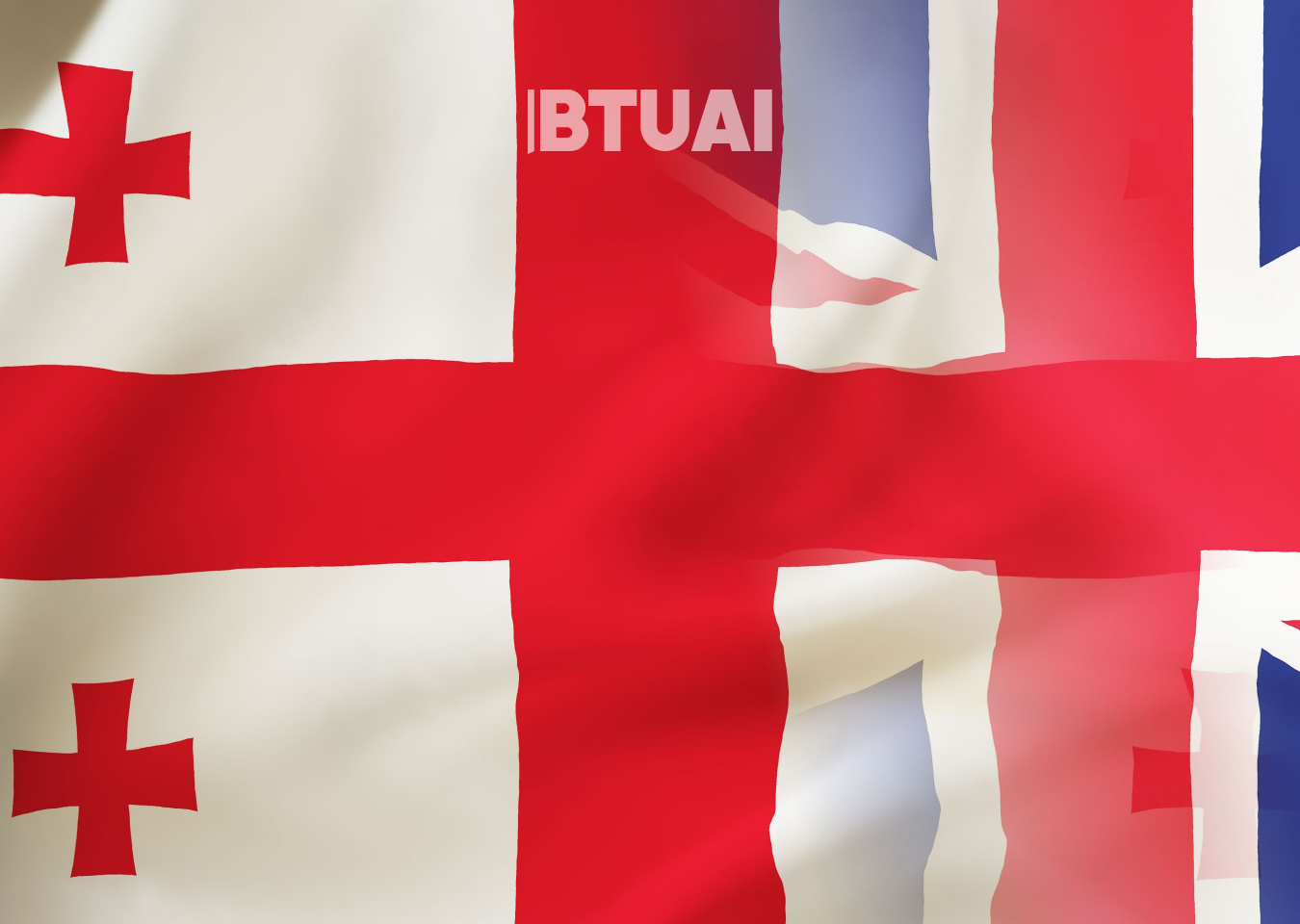UK–Georgia Economic Relations: Where Does Untapped Potential Still Remain?
Economic cooperation between Georgia and the United Kingdom has been growing steadily in recent years, yet it still falls

Economic cooperation between Georgia and the United Kingdom has been growing steadily in recent years, yet it still falls short of the scale and depth that might be expected given the two countries’ economic structures and strategic interests. Despite high-level declarations and bilateral frameworks, the intensity and impact of cooperation vary significantly across different sectors.
In January–April 2025, Georgian exports to the UK totaled only USD 4.4 million, with the full-year figure for 2024 standing at USD 16.9 million (source: Geostat). Imports from the UK vastly exceed exports and include automobiles, consumer electronics, alcoholic beverages, and industrial goods. Georgia’s main exports to the UK consist of aircraft parts, petroleum gases, cardboard, and turbojets—highlighting the urgent need for diversification.
Beyond trade figures, the UK is one of Georgia’s largest sources of foreign direct investment, especially in energy, finance, and business services. Cooperation also spans tourism, education, and technology—though the depth and future potential of these relationships differ significantly.
Below is a matrix summarizing sectoral positioning based on current cooperation and future growth potential:
Sector Positioning Matrix
(Current cooperation level / Growth potential)
| High Cooperation | Limited Cooperation | |
| High Potential | Investment sector, energy | Trade, tourism, technology |
| Limited Potential | Education | Infrastructure |
Investment Sector – The UK is already a major investor in Georgia, with long-term players like BP helping to establish a stable investment environment. However, diversification into technology and green sectors remains limited. There is growing opportunity for impact investment funds based in the UK to explore areas like energy efficiency, circular economy models, agritech, and climate-resilient finance.
Energy – One of the most established areas of cooperation, but future growth depends on expanding into renewable energy. Georgia has significant untapped solar and wind potential, which can be activated through UK technological expertise and capital, especially within the context of regional energy security.
Trade – Despite the existing free trade agreement, Georgian products are not yet broadly integrated into the UK market. However, there is strong demand in the UK for authentic, organic, small-batch, and ethical goods, all of which align with Georgia’s traditional production strengths. High-potential sectors include wine, honey, essential oils, medicinal herbs, and artisanal design. Expanding this potential requires stronger branding, adherence to standards, logistical efficiency, and access to e-commerce platforms.
Tourism – The return of direct flights by UK carriers has already revitalized interest. Georgia can position itself as a culturally rich, underexplored alternative to mainstream European destinations. Special interest areas include wine tourism, culinary routes, ecotourism, and cultural heritage trails. British tourists tend to value unique experiences, and Georgia’s appeal during the summer and autumn seasons could be particularly strong. Infrastructure upgrades and targeted marketing are essential to fully capitalize on this segment.
Technology – Though still emerging, the tech sector shows strong potential. Georgia’s growing IT outsourcing market, fintech startups, and AI products are increasingly competitive. The UK’s need for reliable regional partners creates an opening for Georgia—particularly with its English-speaking talent, favorable cost-quality ratio, and cybersecurity capabilities. Stronger links in digital services, including regtech and cloud security, could offer shared benefits.
Education – A sector with long-standing cooperation, particularly via Chevening scholarships, British Council programs, and university partnerships. However, large-scale expansion is less likely. More realistic opportunities lie in joint research, digital education formats, and professional training programs tied to private sector needs, such as innovation-focused accelerators and transnational education platforms.
Infrastructure – While the UK’s Export Finance facility has allocated GBP 4 billion in credit for Georgia, these funds have not yet translated into major projects. For this potential to materialize, concrete initiatives are needed in areas like urban mobility, green infrastructure, and logistics hub development. Well-prepared proposals and co-financing mechanisms could better align UK interests with Georgia’s infrastructure needs.
Bilateral relations already span a wide range of sectors, but several high-potential areas remain underutilized. Sectors like technology, trade, and tourism, where cooperation is still limited but prospects are strong, require greater strategic alignment and more active involvement from both governments and private actors to realize their full potential.




